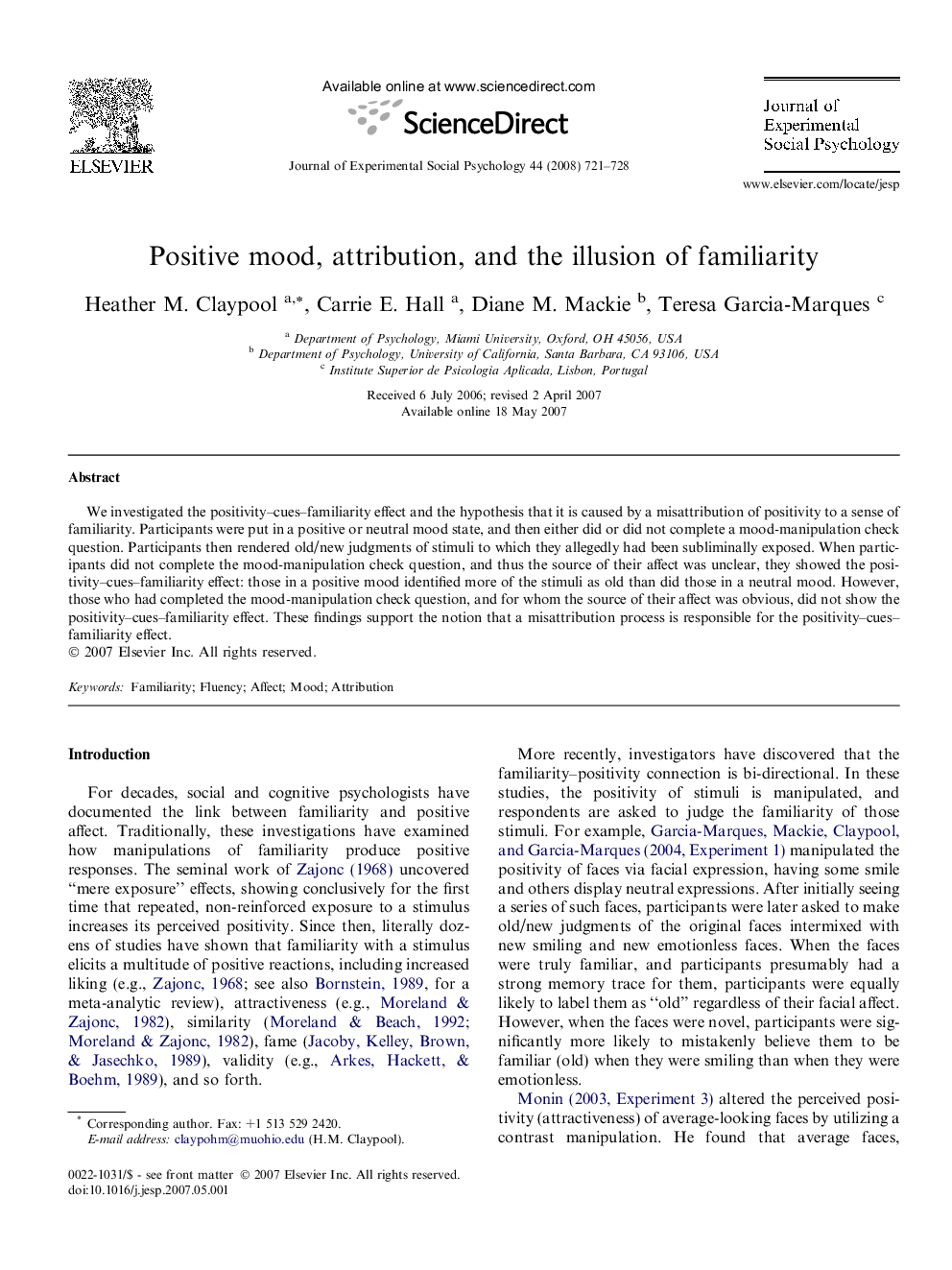| کد مقاله | کد نشریه | سال انتشار | مقاله انگلیسی | نسخه تمام متن |
|---|---|---|---|---|
| 948123 | 926456 | 2008 | 8 صفحه PDF | دانلود رایگان |

We investigated the positivity–cues–familiarity effect and the hypothesis that it is caused by a misattribution of positivity to a sense of familiarity. Participants were put in a positive or neutral mood state, and then either did or did not complete a mood-manipulation check question. Participants then rendered old/new judgments of stimuli to which they allegedly had been subliminally exposed. When participants did not complete the mood-manipulation check question, and thus the source of their affect was unclear, they showed the positivity–cues–familiarity effect: those in a positive mood identified more of the stimuli as old than did those in a neutral mood. However, those who had completed the mood-manipulation check question, and for whom the source of their affect was obvious, did not show the positivity–cues–familiarity effect. These findings support the notion that a misattribution process is responsible for the positivity–cues–familiarity effect.
Journal: Journal of Experimental Social Psychology - Volume 44, Issue 3, May 2008, Pages 721–728